Congratulations Class of 2020. Please enjoy this video slideshow of the undergraduate Faculty of Education Spring Class of 2020, including messages from the Dean of Education and Associate Dean of Undergraduate Programs and Student Services.


Congratulations Class of 2020. Please enjoy this video slideshow of the undergraduate Faculty of Education Spring Class of 2020, including messages from the Dean of Education and Associate Dean of Undergraduate Programs and Student Services.

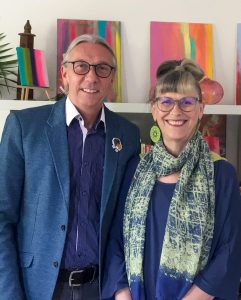
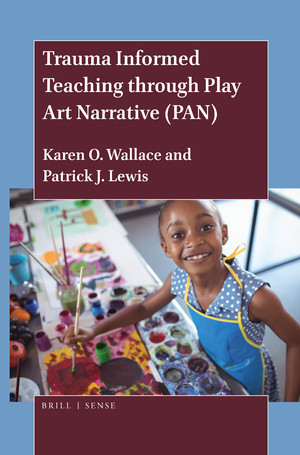 New book by Karen O. Wallace and Dr. Patrick J. Lewis, Trauma Informed Teaching through Play Art Narrative (PAN). Published by Brill.
New book by Karen O. Wallace and Dr. Patrick J. Lewis, Trauma Informed Teaching through Play Art Narrative (PAN). Published by Brill.
Trauma affects the lives of many children who we teach in school. It effects the students, teachers who teach them, the administration, and the school community as it is part of the school environment and culture. Teachers and administrators have great potential to set up an environment and adopt an attitude that can help heal the trauma in the lives of their students. Read more
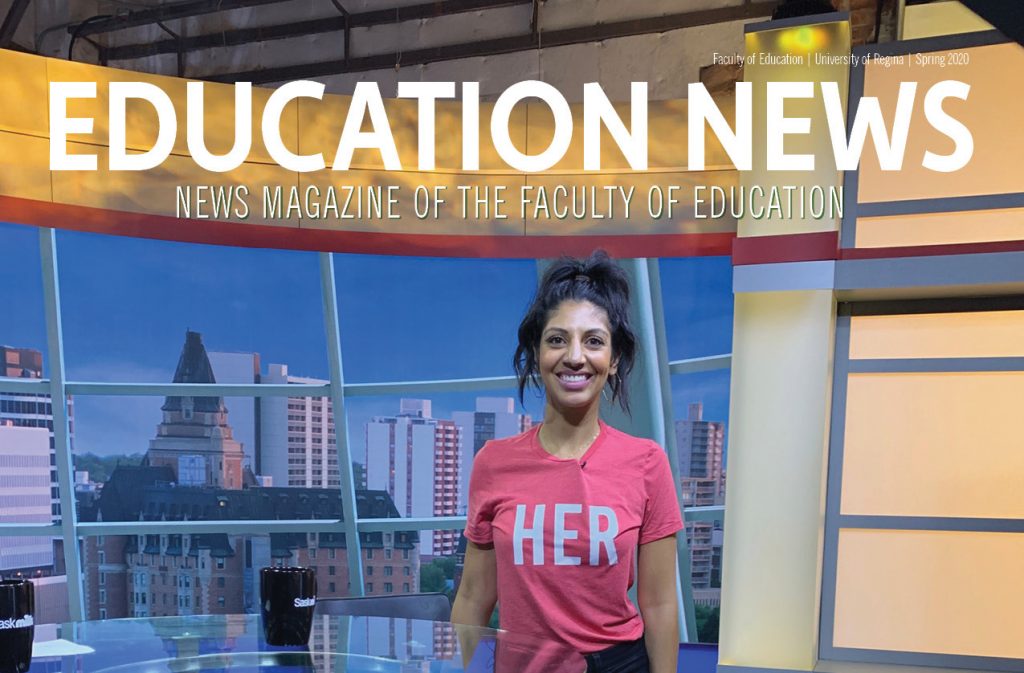

Being a teacher is an opportunity to change lives as alumna Kam Bahia (BEd ’08/MEd Psych ’19) is demonstrating. While a student athlete at the University of Regina (U of R) for five years, Bahia herself had life-changing experiences: “I was given life lessons on perseverance and balance,” she says. Education faculty Dr. Twyla Salm, Dr. Marc Spooner, and Dr. Ron Martin particularly demonstrated for Bahia “what education and passion are all about.”
Bahia has had many opportunities since to pass these lessons forward. With 12 years of teaching experience behind her, the Regina high school teacher has noted a rising “epidemic of self-doubt” among the youth.
“Each generation that passes through my classroom walls seems to be in more distress than the ones before. There is a common theme taking place: our youth are in crisis (for a multitude of reasons that exist now that never did when you or I were growing up). Decision making is rooted in our self-worth, but unfortunately, young people are facing an epidemic of self-doubt,” says Bahia.
Not one to passively observe problems, Bahia has reached out beyond the classroom walls to encourage, empower and equip youth by founding several youth initiatives. During some time spent in Toronto in 2017, she began the Bootcamps for Change initiative, which provides fitness classes for youth in shelters. In Regina, Bahia founded the I Am H.E.R. (Hopeful, Equipped, Resilient) Foundation in 2019, through which she offers workshops in elementary schools and high schools. Through this program, Bahia has opportunities for “raw” conversations about the real issues youth are facing. The I Am Her Foundation framed and inspired the U of R’s INSPIRE Young Leaders forum and is also behind Bahia’s latest conception: the Reverse School Bus Program, which she began in response to the current COVID-19 crisis.
Through the Reverse School Bus Program, Bahia is delivering meals to youth who rely on the school lunch programs in Regina. Bahia says, “When COVID-19 hit and schools closed, my first thought went to the vulnerable youth in our city. Knowing what I know as a teacher, and having witnessed the emotional crisis our youth are in, I worried about the students who not only lost out on a sense of structure and comfort, but as simple as it sounds, who lost out on one guaranteed meal a day that was provided through their school’s lunch program. During a time like this, a meal is one thing children or their guardians should not have to worry about. … Nutrition is the building block to emotional and physical well-being.”
To bring this program to life, Bahia collaborated with her brother, who is a co-owner of The Lobby Kitchen and Bar in Regina. Bahia says, “They too had to close their doors and were inundated with their own issues, but we decided to team up and use the inventory that was no longer being used for the restaurant business and provide hot delicious curb side meals for our most vulnerable youth.”
The program grew rapidly: “What started off as a few families, quickly turned into working with schools and Dream Brokers and providing anywhere from 50-350 hot lunches a week. The Lobby doubled down on compassion and provided their resources, staff, and kitchen to help get us started,” says Bahia.
This work has many heartwarming moments for Bahia: “If I could video record these deliveries, I think I would have everyone in tears. The kids will be waiting at the window, we pull up, and they start jumping and screaming, ‘The food is here! The food is here!’ Like children waiting for Santa during Christmas season. Makes you really appreciate the most basic areas of life. I have had families call me in tears, thanking me for this program because when schools closed down, they were worried about how they would provide a meal for their children. One child loved the jersey a driver was wearing. In that moment, the driver took the jersey off, and handed it to this young boy.”
The program made national news when Chief Public Health Officer Dr. Tam tweeted about the good work they were doing. Once the public became aware, there was an overwhelming response. Bahia says, “Our community started donating to our program. People from all over the city of Regina donated money and their time to help deliver meals. Our community is so rare—it’s so beautiful.” This generous, selfless response is what has surprised Bahia the most. “It just goes to show that in the deepest part of our being, the thing that gives us purpose and life is truly to give back.”
 Bahia is grateful to live in Regina where people will go out of their way to help a stranger in need: “We have a community where people will literally give the shirt off their back; that’s something special. How lucky are we to call this place home? How lucky are those students who will be coming from all corners of the world to enroll at U of R to be able to experience this kind of generosity?”
Bahia is grateful to live in Regina where people will go out of their way to help a stranger in need: “We have a community where people will literally give the shirt off their back; that’s something special. How lucky are we to call this place home? How lucky are those students who will be coming from all corners of the world to enroll at U of R to be able to experience this kind of generosity?”
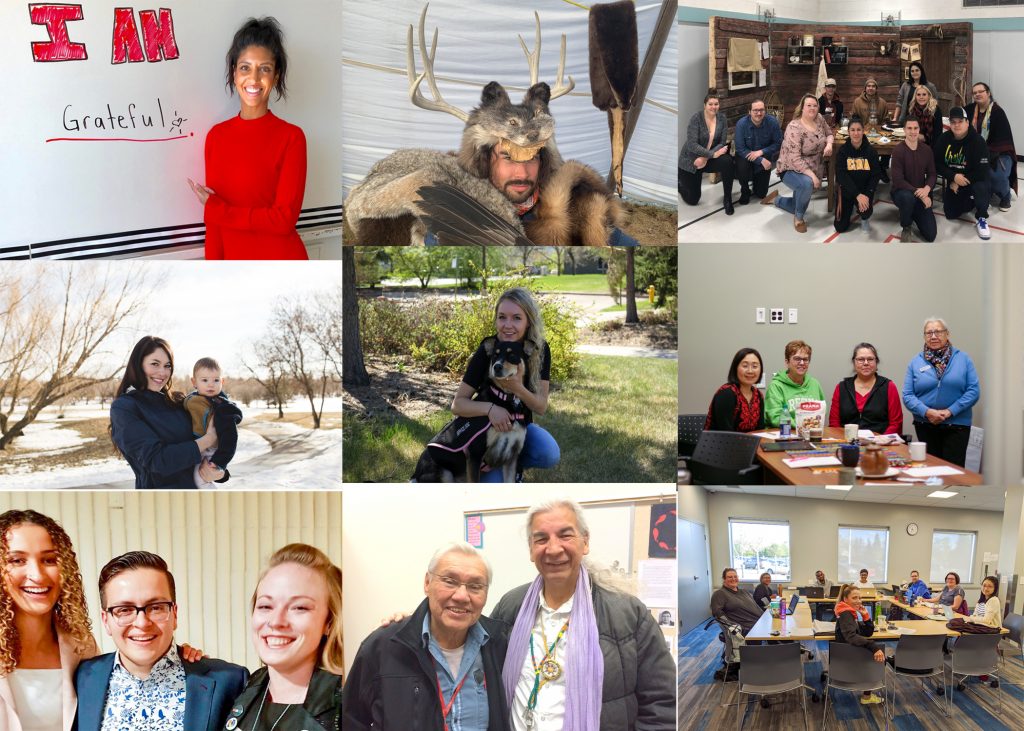
Preview the Table of Contents below and download your free copy by clicking the following link: Spring Issue 2020
Table of Contents
From the Dean’s desk…….3
Alumna’s initiative feeds youth during Covid-19 crisis……. 4
Land-based teaching feels like home……. 5
Educating about life with a service animal……. 6
Decolonizing education: One Kitchen Table Party at a time……. 8
Student researcher concerned with accessibility to play……. 10
Lee Airton speaks to students about gender diversity……. 12
Remembering Life Speaker Noel Starblanket……. 13
Students at WestCAST……. 14
ESS holds Town Hall meeting with Dean Cranston……. 14
Grad students writing group……. 15
Indigenization events……. 16
Cougar Awards……. 17
Student bursaries, scholarships and awards……. 18
Funded Research……. 19
Long service recognition……. 22
Staff retirement……. 22
New faculty……. 23
New books……. 23
Published writing……. 24
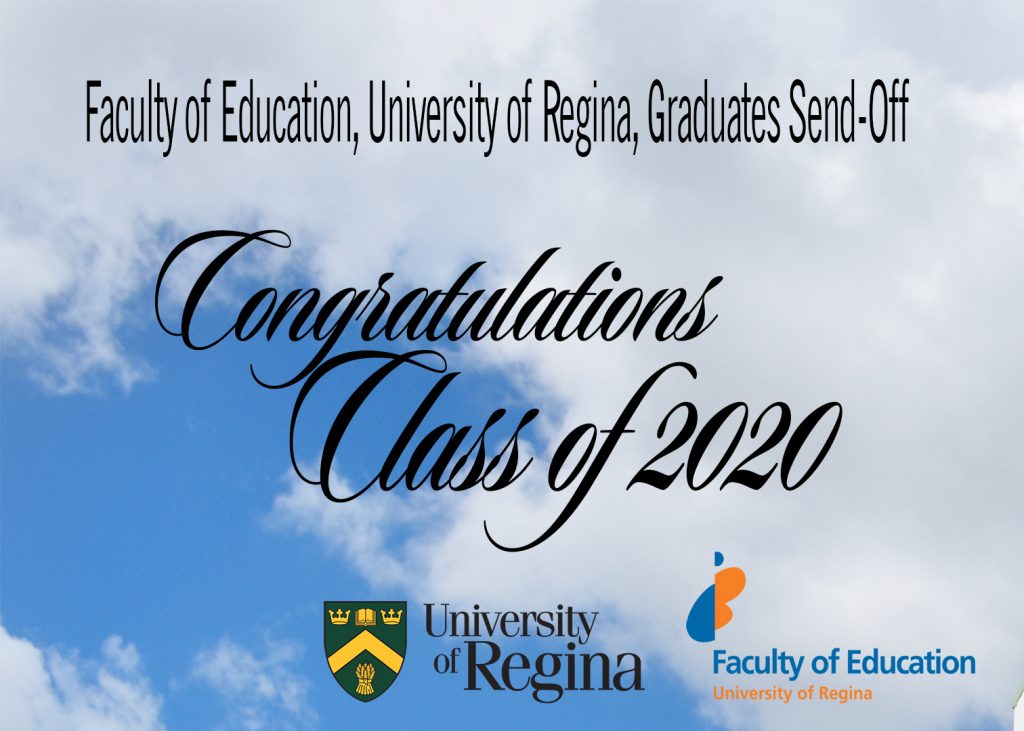
Congratulatory messages from the Faculty of Education to the Spring Class of 2020 with words and music by @ScottAnthonyCDN ©2020, produced at-a-social-distance by alum Ryan Hicks (’17). https://youtu.be/BqcNwUzDbN8
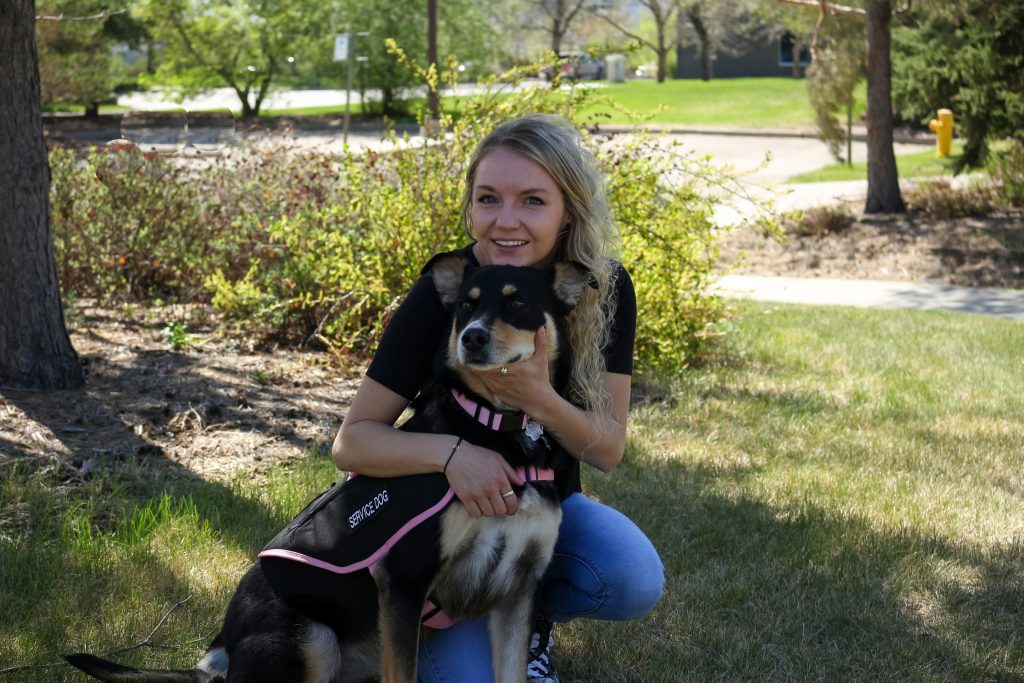
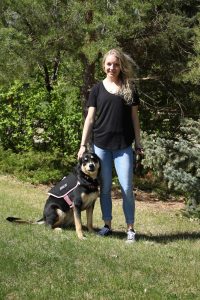
Erin Strueby (BEd/BKin ’20) has a passion for working with students with exceptional needs. But teaching wasn’t Strueby’s career goal when she first came to the University of Regina (U of R). After being recruited to the U of R Cougar’s Track and Field team, she started out as a Kinesiology student. Teaching became her goal through working in the U of R Summer Sports School (SSS) as a camp leader.
“Through SSS, I discovered that I really enjoy working with children, building relationships, and teaching new games and skills,” says Strueby. After her second year of SSS, Strueby decided to do a joint degree, beginning her Education program while also completing her Kinesiology program. Because Summer Sports School had given her an opportunity to work with children of all abilities, Strueby says she, “developed a true passion for working alongside children with exceptional needs.” She thus decided to complete a Certificate of Extended Studies in Inclusive Education. Strueby says, “Although becoming a teacher was not where I thought I would end up, I am incredibly happy with the path I ended up on and cannot wait to start my career as a teacher.”
However, Strueby has concerns about her career path as a teacher because Strueby herself is a person with an exceptional need: She requires the assistance of her service dog, Stella. Strueby’s reasons for needing Stella are not immediately apparent to others: As a student, she has demonstrated academic proficiency having just finished her seventh year at the University of Regina and she is also a dedicated athlete, as seen in her competitive cross country and long distance running with the U of R Cougars for four years.
Strueby says, “Because my disability is not visible, I often get asked, ‘Why do you need a service animal?’ I have also been asked, ‘What is wrong with you,’ ‘Are you blind or something,’ and ‘Whose service animal are you holding?’ Fortunately, these questions do not easily offend me and I am able to respond in a way that provides people with further knowledge on service animals.”
In her public life, Strueby faces challenges and obstacles because of a lack of knowledge about the use of a service animal. For example, many public places do not know the difference between a service animal and a support/therapy animal. Strueby says, “According to the Saskatchewan Code of Human Rights, support or therapy animals do not have the same rights as service animals do, and are restricted access to many public places. I have often been denied access to places because people think my service animal is a support animal. Trying to explain the difference between a service animal’s role and a support/therapy animal’s role can be rather difficult when people are not open to understanding. This is where I have encountered many issues and struggles when I am trying to live everyday life.”
While Strueby turns many difficulties into opportunities to educate, she also experiences situations which can’t be responded to. For instance, she says, “People have glared, whispered, and said ‘I guess anyone can get a service animal for anything now-a-days’ or ‘They seem to just let dogs everywhere.’”
Another challenge Strueby faces is how others respond to her service animal. She says, “I have also had people swoon over my service animal, make kissy noises or whistle at her to get her attention, and mention how cute she is. Additionally people also try to take pictures of her as if seeing a service animal is a rare phenomenon.”
Strueby compares Stella to a wheelchair: “It is not often that people make snide remarks to people who are in wheelchairs, or to comment on ‘how cute’ a wheelchair is, or to take pictures of it.” Strueby points out that societal norms about visible disabilities teach the public not to ask about how another person is managing their disability, but these norms don’t extend to invisible disabilities.
For example, because Strueby requires Stella only in certain conditions, she is often asked, “Where’s Stella?” when she leaves Stella at home. Strueby says, “Seeing that I make use of my service animal only when I feel I need it, people often think I am faking mental illness, or only had Stella certified because I wanted to be able to take her places with me. This is so far from the truth—having to take a service animal with you in order to function can be such a burden; it is not ‘fun,’ it is not ‘cool,’ and it can make everyday tasks much more difficult.”
“Stella is an incredible tool I have the privilege to use. When I am in busy environments she acts as a barrier between me and other people to ease my social anxiety. During stressful and overwhelming moments in class she will lick my hand or become restless when she recognizes I need a break from the environment I am in. When I have panic attacks or moments of distress she will lie on the floor beside me and paw at me until I am fully focused on her. At home Stella can usually be found right by my side; however if she is not with me, she is constantly checking up on me. Whether I am napping, working on homework, or even in the bathroom… it is never long until she pushes her nose through to see what I am up to,” says Strueby.
While troublesome, these experiences have taught Strueby about what she needs and when she needs it. Though she has some bad days, she says, “I now have the ability to understand exactly what I need during those moments in order to push through.”
“Moving forward, I am working on feeling less guilt and judgment around how I use my service animal,” says Strueby. The use of Stella has been a topic that has weighed on Strueby for some time. Her concerns rise as she anticipates how misunderstandings around her use of Stella might impact her employment in the education field, the work she has become passionate about.
In the fall of 2019, the final year of her Education program, Strueby, with Stella by her side, was required to complete a semester-long, in-school internship. After some initial struggles, and with the support and encouragement of the field placement staff at the U of R, Strueby was finally placed at Luther College High School in Regina under the supervision of Erin Woods and Troy Casper, where she was encouraged by a successful internship.
Strueby says, “Luther provided me such a positive internship experience. Everyone at Luther welcomed me with open arms, was continually supportive, and made my teaching experience one to remember. The Luther community accepted me for who I am and was more than open and willing to learn about my needs, and how a service animal can be used to help those with all types of medical complications. I loved every minute I spent at Luther and I am so thankful for everyone who pushed and challenged me during my teaching experience. I made many relationships with the staff and students and I am looking forward to strengthening those relationships through volunteer work (ex. coaching), and through continuing to share resources and regularly connect with my co-operating teachers and colleagues.”
Through telling her story, Strueby says, “I hope others are able to gain a better understanding about how people’s needs are never the same.”
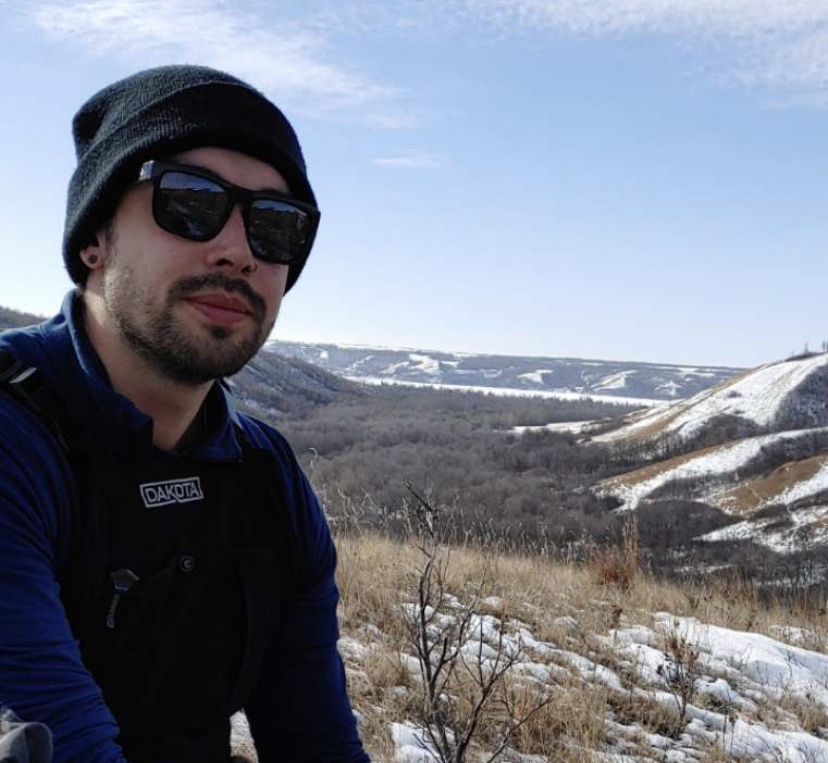
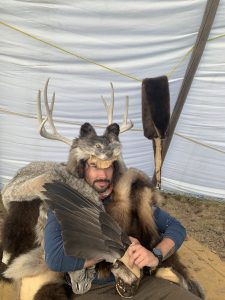
Raised in Indian Head, Garrick Schmidt (BEd ’20) spent his summers and spare time “out on the land” in the Qu’Appelle Valley at Katepwa and Lebret where his Métis family members originated. There Schmidt learned from family members how to hunt and trap and about some of the plants and medicines in the Valley.
In recent years he has added to that knowledge, as he says, “I have learnt from Elders, Knowledge Keepers and also from genetic memory. I know it might sound odd or strange. But for myself I find when I am on the land, I am making genetic connections to ancestors and they are passing down memory of how to do tasks and knowledge.”
Out of his desire “to help shape and guide younger Indigenous youth to give them the best possible chance to be successful,” Schmidt decided to attend the Saskatchewan Urban Native Teacher Education Program (SUNTEP) at the University of Regina.
As a family tradition, SUNTEP was an obvious choice: “My mother Patty-Lou Racette was a part of the first group of people to attend SUNTEP when it first became a program. … Being the third person in my immediate family and the second generation to graduate from the program makes it that much more special,” say Schmidt, who highly recommends SUNTEP for any Métis youth thinking about teaching because SUNTEP “gives Métis youth the opportunity to learn about family histories and continue to grow as individuals and professionals.”
Schmidt finished his BEd program in December 2019, and began teaching at Kakisiwew School on Ochapowace First Nation in January 2020. Even though a novice at teaching, Schmidt, with the support from his school administrator Riel Thomson and Director Nicole Bear, found opportunity to integrate land-based learning, taking his Grade 8 class out on the land.
“We are fortunate enough to have beautiful landscape right behind the school where we set up a trap line in the winter for rabbits,” Schmidt says.
Recently, due to the COVID-19 pandemic restrictions and students learning from home, Schmidt has been posting land-based learning videos on social media.
Schmidt says, “I felt during these times of chaos and panic that my students, community members, and beyond would benefit from seeing my videos, and the videos would give a sense of routine for my students. I also wanted to create these videos because it is so vital that our youth are taken back to the land to learn traditional skills where family members may not have had the opportunity to pass these on to their children, or where students are in an urban setting and unable to do so as well.”
Land-based learning, besides getting students and educators out of the classroom setting, has many benefits: “With class size issues, multiple intelligence learning, and also behavioral concerns, by taking students onto the land, teachers can see almost immediate changes in students. I have had the chance to design my own time-table where I have created a land-based class for my students. Making cross-curricular connections to every subject gives me accountability for teaching Saskatchewan curriculum as well as traditional teachings.”
Though the videos were intended for his students and the other students of Kakisiwew School, they have been viewed by many more. Schmidt says, “I know my videos have reached out to British Columbia, Ontario and I’m sure beyond. I am very excited to see where things go in the next few months.”
“I have received amazing feedback from my videos. I am hoping that things continue to rise and I am able to reach as many people as I possibly can. Land-based learning and traditional content can be hard to find at times and I feel that with the advances in technology and recording it makes it easier for me to reach a much larger audience,” says Schmidt.
On a personal level Schmidt says land-based learning feels like home: “It takes me home to the land, the Valley where I grew up. … I can’t believe I have only been teaching since January. It feels like I have been doing this for years now. I love the support from the Ochapowace Nation community; everyone has supported me since day one and welcomed me with open arms making it home for me.”
See LeaderPost story
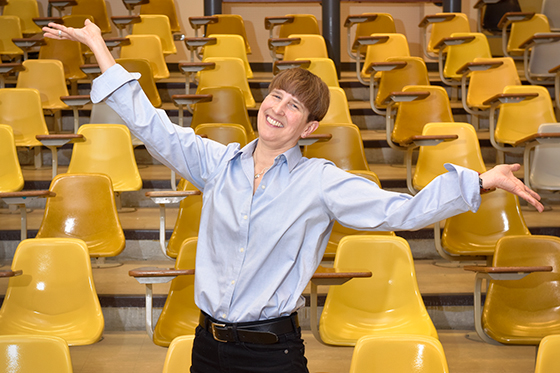
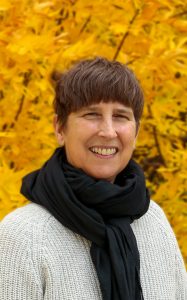
Congratulations to Dr. Kathryn Ricketts, who has agreed to assume the role of Director of the Professional Development and Field Experiences as of July 1, 2020 for a 3-year term.
In-school Field Experiences have been a defining feature of our Faculty since its inception. Each program in the faculty contains at least three major practicum experiences. The first-year practicum experience is an introduction to schools, an exploration of the various roles in education. More extensive development occurs in the pre-internship year. It is at this level that students experience the link between theory and practice since education courses over two semesters are coordinated with the practicum. An intensive 16-week internship, under the daily supervision of a cooperating teacher, has over the years become the ‘flagship’ of the Faculty of Education. The two-day Internship Seminar for cooperating teachers and interns, which has a long history of strong support by the partners in education in Saskatchewan, is unique in Canada.
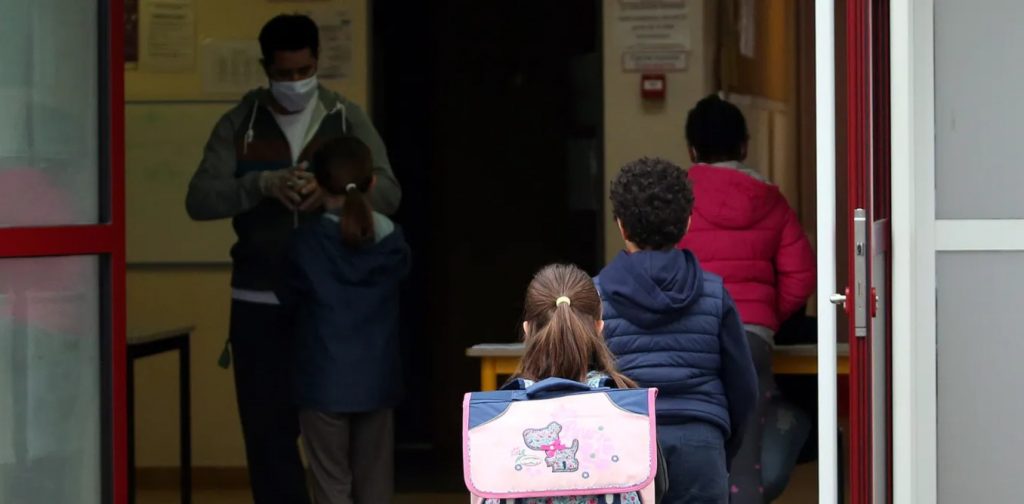
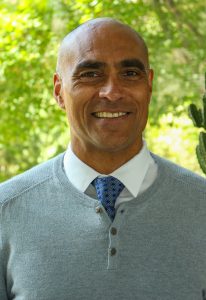
Across Canada, many parents, educational policy experts and educators are now looking at possibly late August or early September as they consider how schools can safely reopen amid the unknowns of the coronavirus pandemic.
I’ve had the good fortune to spend close to 30 years in the education sector including working as a teacher, principal and director of education. I’m now a professor of educational leadership and dean of the faculty of education at the University of Regina, which is on Treaty 4 territory and the traditional homeland of the Métis/Michif Nation. My career has spanned the geographical, social and political contexts of the prairie provinces.
Over the past eight weeks, I’ve been hosting a web series for educators (Leading a School Community Through a Pandemic) and connecting with other Canadian deans of education. I’ve spoken to other educators about the challenges for schools, from hindered learning and children’s developmental needs to the impact COVID-19 has on Black, racialized and Indigenous students and their families.
Educational leaders are facing an overwhelming task: establishing effective mechanisms to maintain physical distancing and to practise adequate hygiene while, at the same time, continuing to support teachers so they can meet students’ learning and developmental needs.
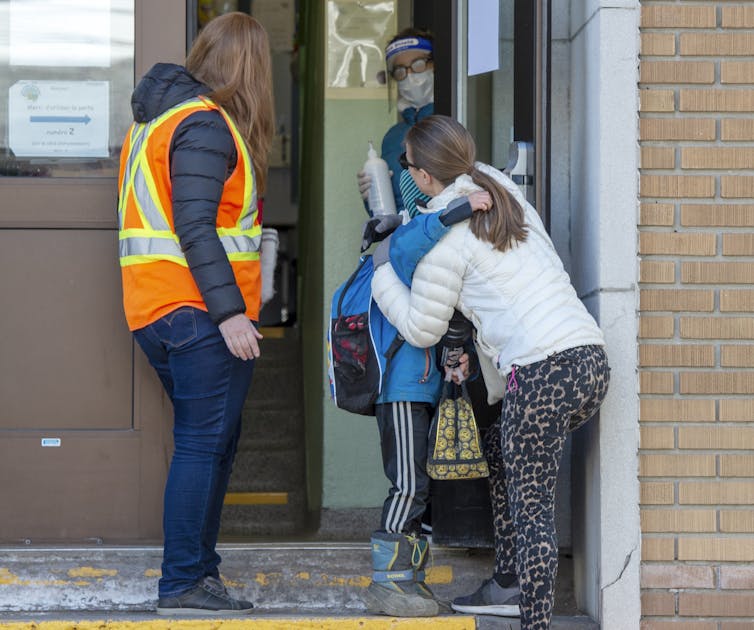
Given what we are collectively facing, we need a national, rapid-response task-force made of educational experts — practitioners such as teachers or educators, policy makers as well as scholars who understand how schools operate — and experts from community health and infectious diseases to work together.
This would be similar to what the Public Health Agency of Canada has done under the leadership of Dr. Theresa Tam.
A task force for education could develop a pan-Canadian road map to inform how authorities responsible for kindergarten to Grade 12 education could develop and implement their own specific frameworks for reopening.
Such a task force would require meaningful involvement of Indigenous education leadership groups to support school reopening efforts on-reserve and for Indigenous students going to school off-reserve. There is a need to recognize the inherent sovereignty of First Nations, Métis and Inuit people, especially following from the Calls to Action offered in the final report of the Truth and Reconciliation Commission of Canada.
Any school reopening efforts on reserve require that the Canadian government not forget the a dire need for additional pandemic funding.
Without a road map, it’s hard to see where we are headed.
Without robust, evidence-based plans, a rapid return to school will only increase existing pressures. One serious challenge is that large numbers of students who return to school could, in fact, be carriers of the virus but not present obvious symptoms. Despite physical distancing measures in schools, the simple act of mingling with others may lead to a steep increase of transmission.
The planning for school reopening cannot be unconditional. If infections rise, schools would have to be closed again.
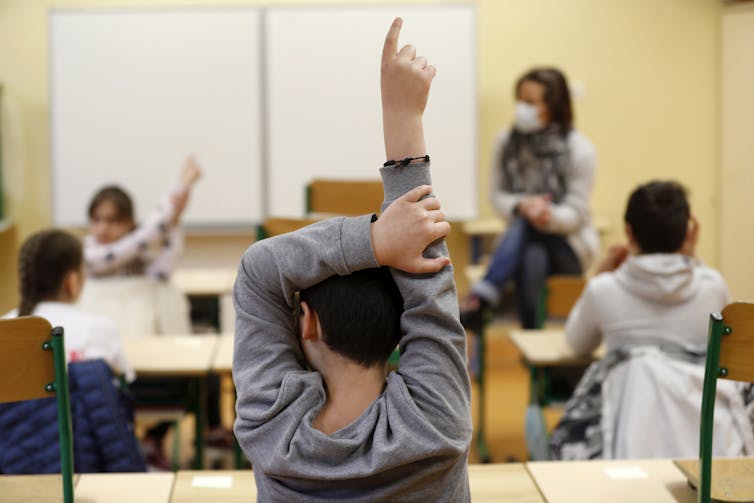
Schools are social systems that buttress students’ academic achievement as well as shape — and hopefully support — their social and emotional development. Research has illustrated the important role that formal education plays to support students as they develop the social and emotional skills essential for working with others. This includes developing healthy coping mechanisms, resiliency, and achieving educational and life goals.
Research points to the fact that the physical setup of classrooms and schools contribute to student learning.
Everything from classroom seating arrangements to playground spaces to a school’s physical layout can impact how and what students learn. The physical, built environments of schools and classrooms certainly impact learning and development.
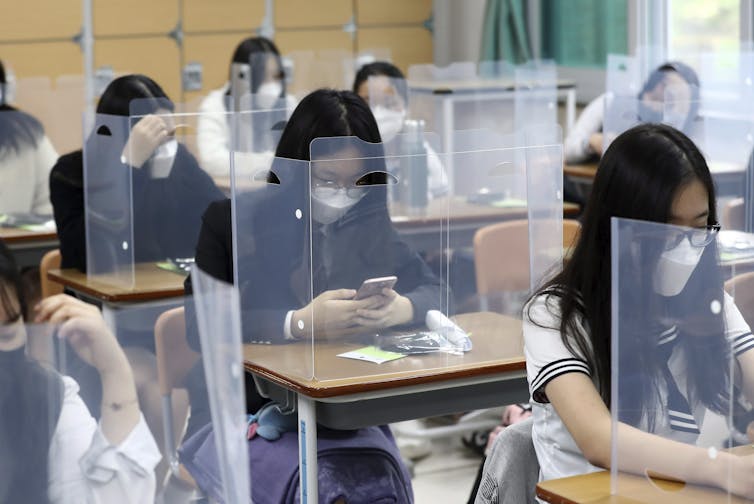
Teaching extends beyond transmitting subject and content knowledge to students. Teachers introduce children and youth to societal values, norms and life-skills. Learning is an interactive process, and effective teaching is based on relationships.
Reopening is a complex public health concern that requires preparation and considers such factors as how the newly arranged physical environment of schools and classrooms — enacted to mitigate risks of COVID-19 — impact teaching philosophies and practices and the overall goals of what students learn.
A Washington Post article shows what schools could look like: one-way hallways; students and teachers in masks; lunch inside classrooms instead of cafeterias if they exist; buses running half-empty; and students and staff having their temperatures checked before entering.
The government of Scotland is considering such measures as: placing limits on class sizes; grades alternating weekly between studying at school and at home; splitting the day between students who attend in the morning and those who attend in the afternoon; redesigning and reconfiguring classrooms to ensure physical distancing; requiring students to take recess and lunch breaks at different times.
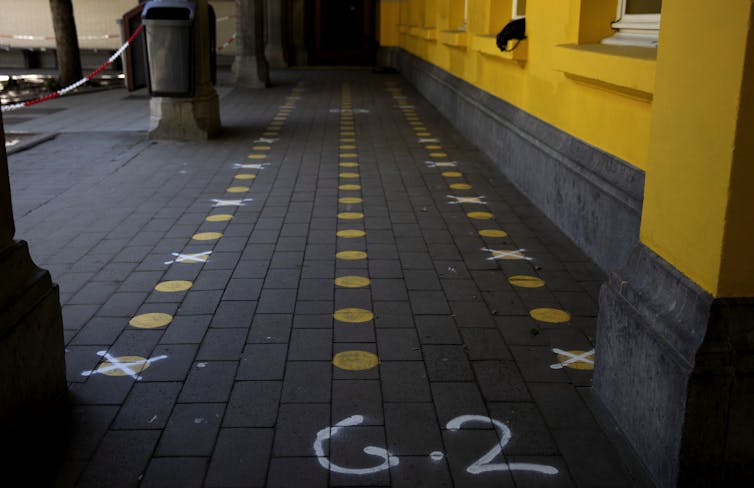
The weight of this unknown is compounded by the varied impacts that months of the pandemic may have on vulnerable families, individual children and communities — not to mention how social distancing, shutdowns and COVID-19 is interacting with other social inequities such as racism, poverty and colonialism.
Read more:
4 strategies to support vulnerable students when schools reopen after coronavirus
There is a considerable amount of work that needs to be done to develop plans.
The need for a collective, strategic approach to support the health, education and developmental well being of children and youth is critical.
If we don’t start working collaboratively now on a road map, the experiment of reopening this fall might result in a kind of failure that not only negatively impacts student learning and development, but could also cost lives.![]()
Jerome Cranston, Dean & Professor, Faculty of Education, University of Regina
This article is republished from The Conversation under a Creative Commons license. Read the original article.


Congratulations to Dr. Marc Spooner who has received a $49,600 SSHRC Connection Grant for his research entitled, “A ‘Crisis’ in Academia: Radio Documentaries Exploring the Changing Landscape of Higher Education.”
This project will involve a four-part documentary mini-series that explores: (1) how shifts towards market-based reforms are shaping research agendas in North America, (2) how new academic management practices are influencing teaching & learning, and (3) how scholars and students are resisting these dynamics.
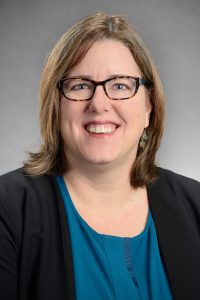
Congratulations to Dr. Christine Massing (Principal Investigator) who, in a partnership involving 8 institutions, has received a $36,379 SSHRC Connection Grant for their research entitled “Sketching narratives of movement towards comprehensive and competence early childhood educational systems across Canada.”